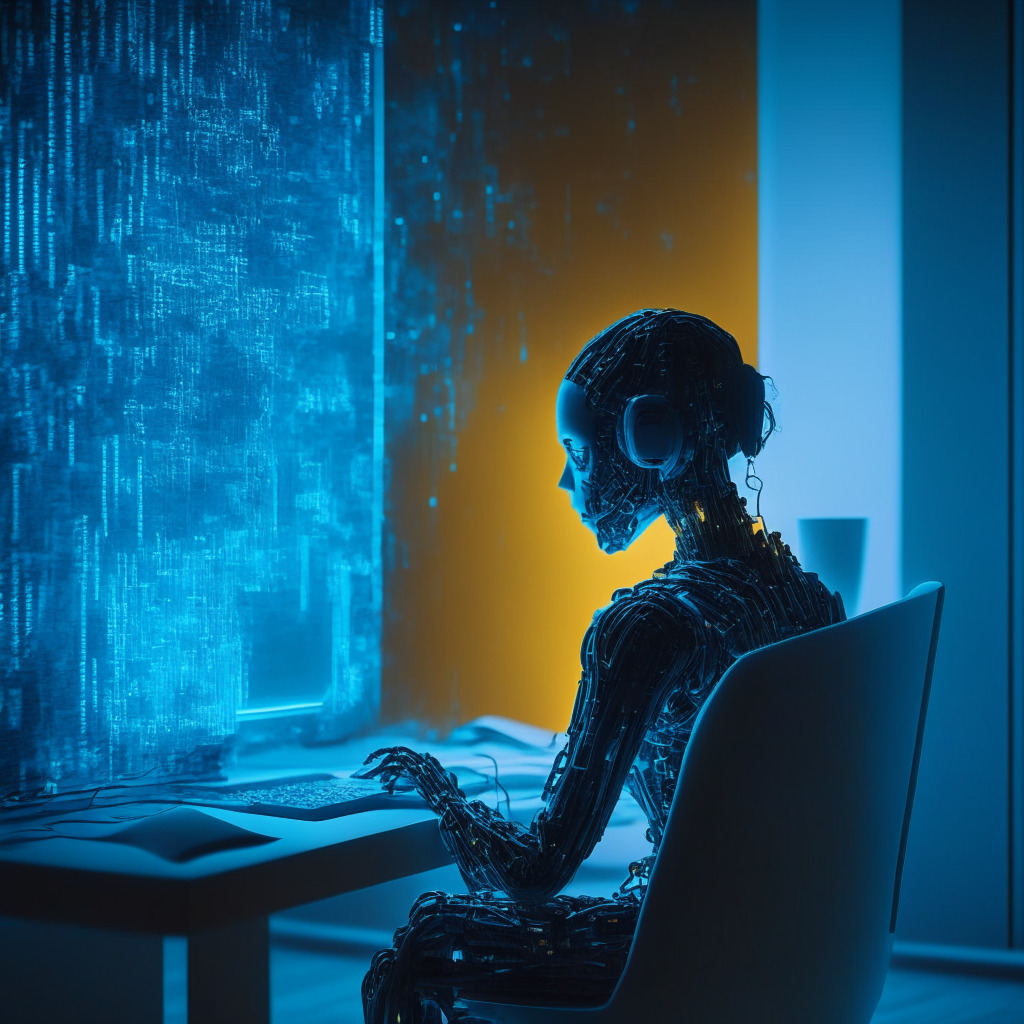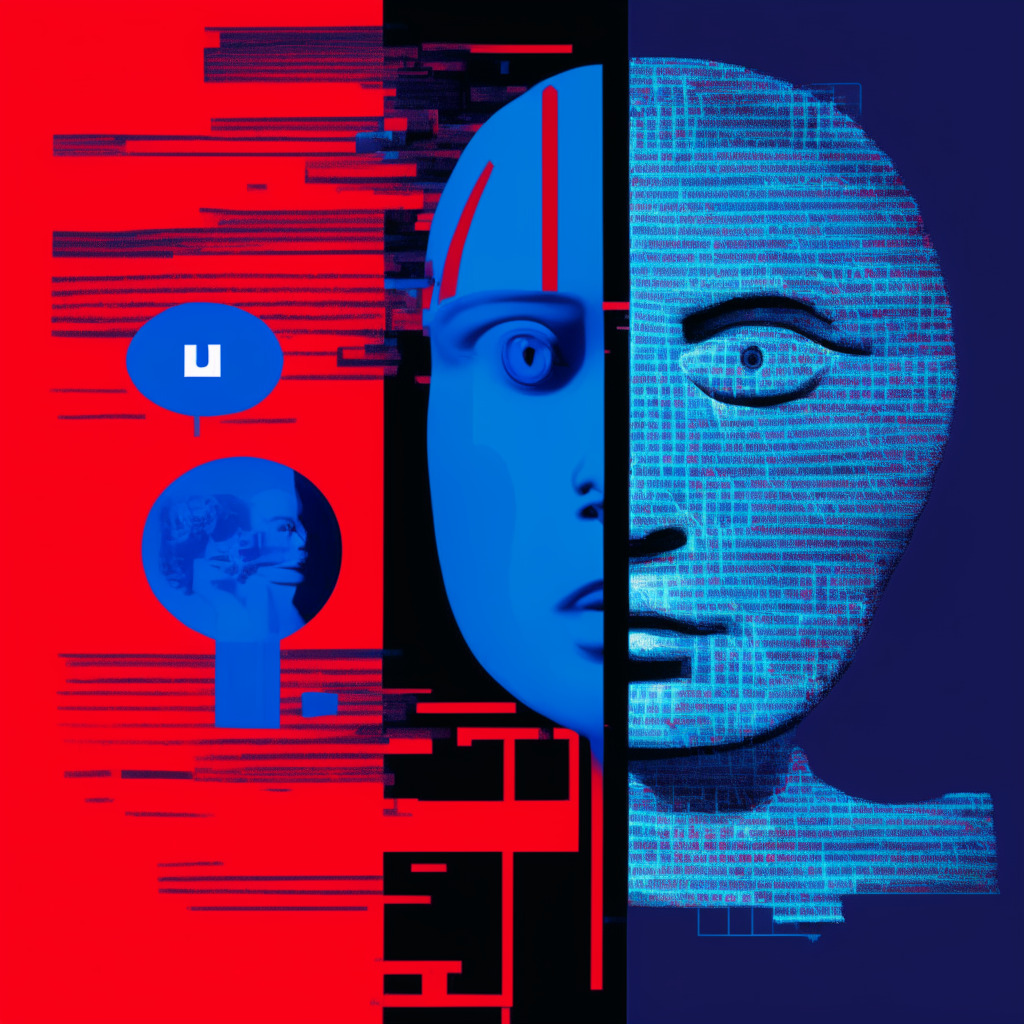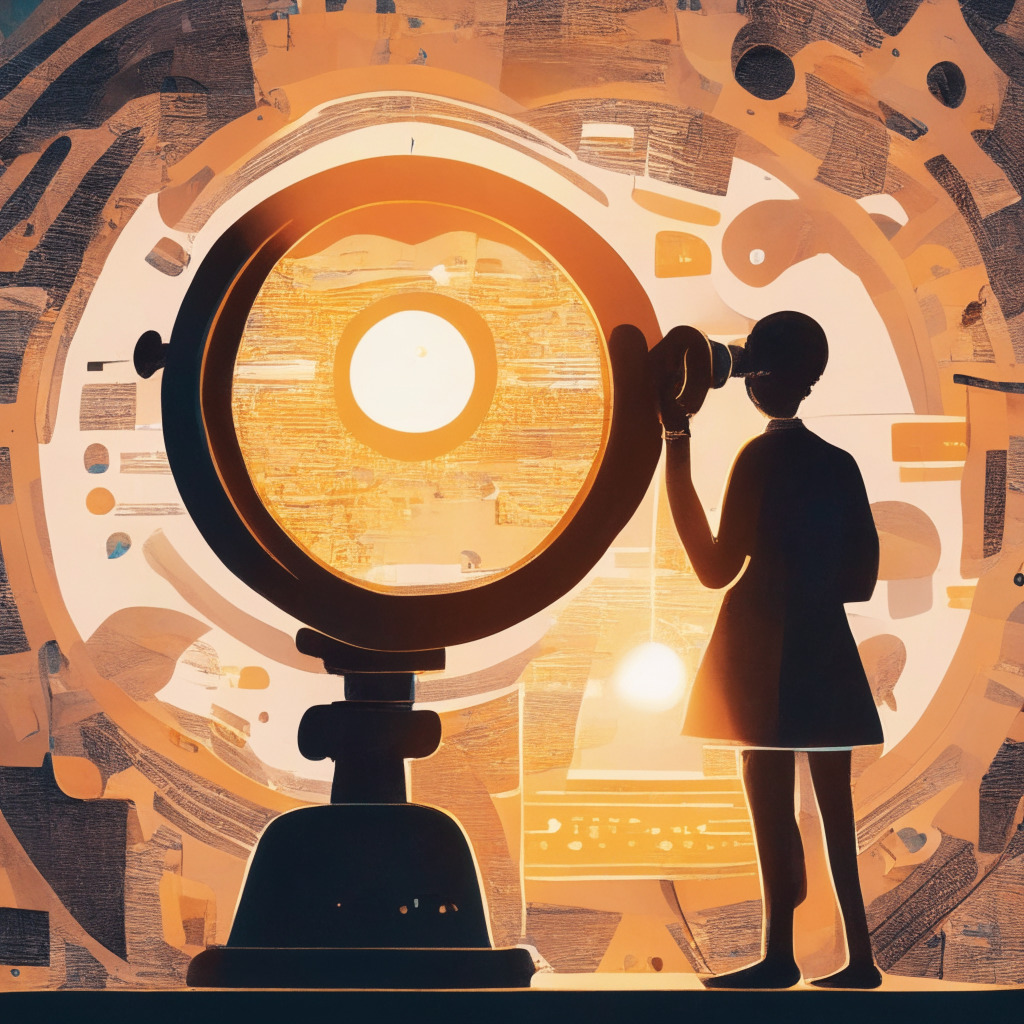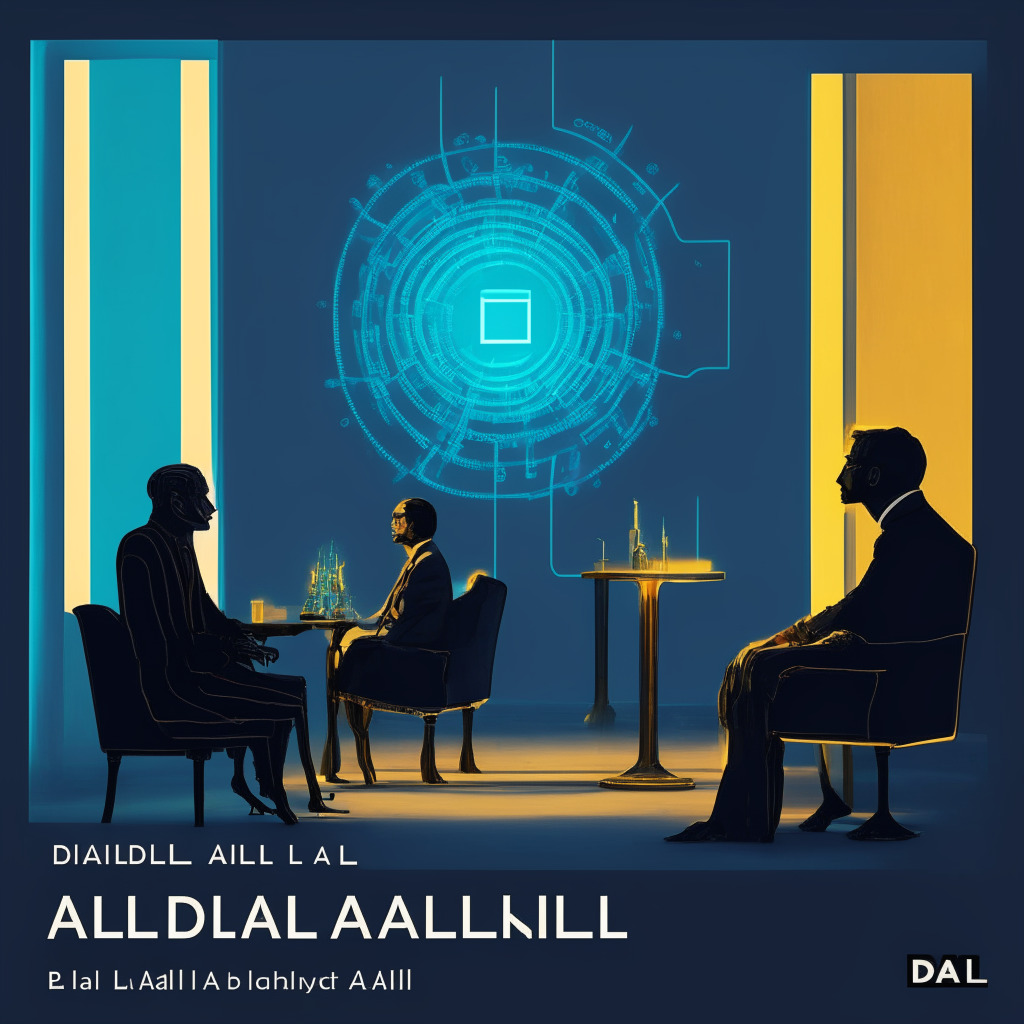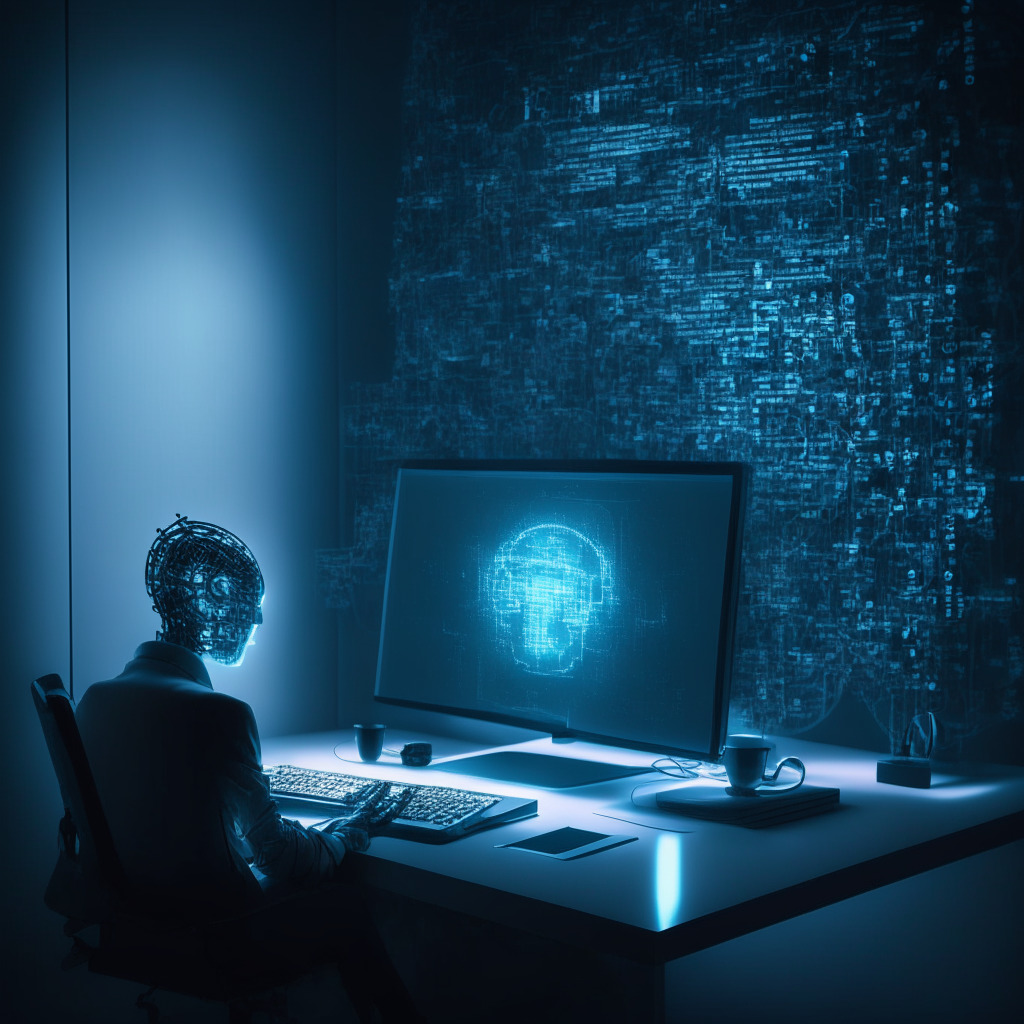The CEO of OpenAI, Sam Altman, praises Bitcoin for its potential to combat corruption due to its independence from government control. He and Joe Rogan express concern over US handling of cryptocurrency regulation and central bank digital currencies. Despite recent price dips, Altman and Rogan remain hopeful for Bitcoin’s future due to its limited supply and decentralized mining. However, they caution that like all investments, cryptocurrencies are volatile and risky and require careful research and strategy.
Search Results for: openai
OpenAI’s Crossroad: In-House Chip Production versus Outsourcing amidst Global Shortage
Amid a global chip shortage, artificial intelligence firm OpenAI debates on whether to bring chip production in-house or continue working with chip suppliers like NVIDIA. This decision could present unprecedented challenges, but may also provide a pathway for managing technological advancements and supply scarcity in the broader tech industry.
Meta AI vs OpenAI’s ChatGPT: The Dawn of a New Social Media Interaction Era and Its Ramifications
“Mark Zuckerberg sets to launch Meta AI, interacting across platforms like Instagram and Facebook. Aiming to outdo OpenAI’s ChatGPT, Meta tailors AI products to distinct use cases and entertainment, scheduled to release to selected U.S users and integrate with upcoming smart glasses.”
Investigating OpenAI: Balancing Technological Innovation and European Data Privacy Laws
Poland’s data protection watchdog is investigating OpenAI’s ChatGPT following a complaint accusing the firm of “unlawful, unreliable” data handling. The case surfaces significant matters about personal data protection and OpenAI’s compliance with GDPR, reflecting a broader concern about maintaining a balance between technological innovation and privacy.
Balancing Fine-Tuning and Costs: OpenAI’s Customization for GPT-3.5 Turbo Unveiled
OpenAI has introduced customization for GPT-3.5 Turbo where AI developers can refine performance using dedicated data. This promising feature is met with anticipation, as well as skepticism, given potential implications such as setup costs, maintenance expenditures, and issues around data control and security.
Exploring the OpenAI Code Interpreter: Bridging the Gap or Breeding Complacency?
OpenAI’s code interpreter, developed through reinforcement learning from human feedback, bridges the gap between human language and computer code. Understanding coding practices across languages, it not only grasps code functions, but also identifies bugs, and suggests code improvements. Despite its versatility, it’s crucial to recognise its limitations and reliance on training data.
Uncovering the Political Bias in AI Chatbots: A Deep-Dive into OpenAI’s ChatGPT
“AI chatbot, ChatGPT, developed by OpenAI, has shown a tendency towards left-leaning responses in its discussions of political issues. The emission of bias might be a result of biased training data or the algorithm itself. Although AI brings advancements, biases and security concerns must be mitigated for safe adoption.”
OpenAI’s ChatGPT App for Android: Bridging the Crypto and AI World
“OpenAI has officially released the ChatGPT app for Android users and it’s garnering attention in the crypto community. Bolstering safety and transparency features, it aims to stretch the limits of its large language model. Despite rising competition, OpenAI remains committed to responsible and ethical AI development, which coincides with the global collaboration and hefty investment in AI research.”
Unfair Practices or Unjust Scrutiny: FTC Probes into OpenAI’s ChatGPT and Its Implications
The Federal Trade Commission is rigorously investigating OpenAI’s ChatGPT, an AI conversation bot, for potential “unfair or deceptive privacy or data security practices”. This scrutiny raises questions about OpenAI’s privacy and data security protocol, and hints at possible financial penalties if any infractions are found. The tool’s undeniable potential is offset by significant ethical considerations and potential for misuse.
Breaking Down The AI Training Ethical Dilemma: Copyright Claims Against Meta Platforms and OpenAI
Authors Sarah Silverman, Richard Kadrey, and Christopher Golden accuse Meta Platforms and OpenAI of copyright infringement, claiming that their copyrighted content was used without permission for AI training. The lawsuit highlights the ethical boundaries around incorporating copyrighted material into AI technology development and could have significant implications for the blockchain and AI industry.
Etherscan’s Code Reader: A Glimpse into Smart Contracts with OpenAI’s Help
Etherscan is beta testing a new feature called Code Reader that allows users to query OpenAI’s large language model for researching solidity smart contracts. This intuitive tool provides valuable insights for developers and non-developers to better understand smart contract operations and functionality. However, it shouldn’t be relied upon in isolation.
South Korea: Emerging Powerhouse in AI Chip Development and Collaboration with OpenAI
OpenAI CEO Sam Altman recently met with South Korean President Yoon Suk Yeol, discussing South Korea’s potential to lead in AI chip development, and expressing interest in investing in Korean startups and collaborating with chipmakers like Samsung Electronics. Altman encouraged reduced corporate regulations to foster AI projects and strengthen international standards.
OpenAI CEO Sam Altman Meets PM Modi: AI’s Future in India, Global Regulations, and Potential Risks
OpenAI CEO Sam Altman is set to meet with Indian Prime Minister Modi to discuss India’s potential role in AI regulation, job market impacts, and the country’s capability in shaping global AI discussions. The collaboration could lead to significant advancements in the AI and technology sectors.
Radio Host Sues OpenAI: Defamation, AI Hallucinations, and the Future of Legal Responsibility
Georgia radio host Mark Walters sues OpenAI after ChatGPT falsely accused him of embezzlement in a precedent-setting case. The outcome will likely have implications for AI developers’ responsibility in future situations involving AI-generated misinformation and defamation claims.
AI’s Double-Edged Sword: OpenAI’s $1M Grant to Tackle Cybersecurity & Defend Against Malice
OpenAI commits to a $1M Cybersecurity Grant Program to support AI-driven cybersecurity initiatives, empowering defenders and elevating discourse around AI and cybersecurity. The initiative aims to advance cybersecurity capabilities, evaluate AI model efficacy, and enhance safety and security in the digital arms race.
Hacking of OpenAI CTO’s Twitter Account: Impact on Crypto Adoption and Online Security Debate
The hacking of Mita Murati’s Twitter account, promoting a scam cryptocurrency token, raises concerns regarding the security of high-profile individuals’ social media accounts. This incident emphasizes the need for vigilance and better online security practices, serving as a reminder that while blockchain technology offers potential and benefits, no technology is completely immune to threats.
AI Hallucinations: OpenAI’s ChatGPT, Process Supervision, and the Quest for Accuracy
Artificial intelligence systems like ChatGPT sometimes generate false information or “hallucinations,” raising concerns about factual accuracy. OpenAI is addressing this issue by enhancing ChatGPT’s mathematical problem-solving capabilities with process supervision, a promising method for improving performance and alignment. Understanding the broader implications of process supervision is essential for accurate AI deployment in the future.
Democratizing AI Governance: OpenAI’s $1M Grant Initiative for Ethical System Rules
OpenAI will award ten $100,000 grants for experiments in establishing a democratic process for AI system rules, aiming for responsible oversight of AGI and superintelligence. This initiative raises essential questions around AI governance and transparency, with results freely accessible to the public to promote ethical AI conduct and a responsible future for artificial intelligence.
OpenAI’s EU Dilemma: Adapting to AI Regulations or Withdrawing Services?
OpenAI CEO Sam Altman hints at potentially withdrawing ChatGPT services from Europe if compliance with upcoming EU AI regulations is unattainable. Altman calls for revising proposed regulations, with concerns over revealing copyrighted materials used in AI tools.
Apple Takes a Bite of OpenAI’s ChatGPT Profits: A Dance between Pioneers and Big Tech
OpenAI’s ChatGPT iPhone app has quickly climbed App Store charts, with Apple endorsing it as a “must-have” app. Apple’s infamous 30% cut, or “Apple Tax,” on new iOS subscriptions means the tech giant profits from every ChatGPT Plus subscription, highlighting the complex interactions among AI pioneers, big tech, and regulators in this emerging revolution.
Balancing AI Innovation and Control: OpenAI’s 3-Pillar Strategy for Superintelligence Governance
OpenAI CEO Sam Altman and team warn of AI systems progressing beyond expert skill levels, affecting the global corporate landscape, and emphasize the need for governance of superintelligence. They propose three-pillars: balancing control and innovation, creating an international AI governance authority, and maintaining technical capability to control superintelligence.
Elon Musk Questions OpenAI’s Shift from Non-Profit to Profit: Legal and Ethical Implications
Elon Musk raises concerns over the legality of OpenAI’s transition from a non-profit to a for-profit organization, comparing it to a rainforest protection group turning into a lumber company. This highlights challenges in balancing ethical considerations and profit-making motives in AI, and the need for addressing legal, ethical, and transparency issues within AI technology development.
Elon Musk, OpenAI’s Dilemma, and the Battle Between Open-Source and Profit-Driven AI
Elon Musk’s OpenAI, initially open-source, faces criticism for drifting towards a closed-source, for-profit model, raising concerns about the future of AI development. The growing financial relationship with Microsoft and increasing likeness to Google’s DeepMind sparks debate on AI’s consequences and the balance between open-source ideals and for-profit motives.
OpenAI’s ChatGPT Joins AI Race with Internet Connectivity: Competing or Complementing?
OpenAI’s recent ChatGPT update introduces Internet connectivity, allowing the AI model to access real-time information during chat sessions. Now in direct competition with Google’s Bard and Microsoft Bing, ChatGPT’s new feature presents vast potential for users by searching the web for current information on various subjects.
OpenAI’s Dilemma: Skyrocketing Progress vs. Protecting Cutting-Edge Technology
OpenAI is reportedly preparing to release an open-source AI model amid competition from other models like Meta’s. The move sparks debate on whether open-source models accelerate progress or if proprietary technology ensures continued innovation and market competition in the AI landscape.
Google Bard vs. OpenAI ChatGPT: The Battle for AI Chatbot Dominance and Future Implications
Google’s AI chatbot, Bard, challenges OpenAI’s ChatGPT with upgrades introduced at the Google I/O conference. Transitioning to the PaLM 2 model and offering different versions for various applications, Bard provides improved performance in translation and coding support. Despite ChatGPT’s current adoption advantage, Bard’s free availability may attract users.
Balancing Innovation and Regulation: The Cryptocurrency Dilemma in Government Oversight
“Sam Altman, leader of Worldcoin and OpenAI, discussed his concern about US government’s aggressive regulation of the cryptocurrency industry. While accepting the need for regulatory oversight, he criticized the government’s stern approach, arguing it stifles the potential of digital assets particularly Bitcoin (BTC), and highlighted the surveillance risks of Central Bank Digital Currencies (CBDCs).”
Crossroads of Innovation and Security: EU’s Proposed Regulations on Large-Scale AI Models
The European Union is reportedly discussing stricter regulations on large-scale language models (LLMs) like OpenAI’s GPT-4 and Meta’s Llama 2, aimed at controlling these models without overloading start-ups. These discussions touch on the implications of LLMs, user safety, and ethical AI deployment, mirroring the approach of the EU’s Digital Services Act.
Decoding The Future: Blockchain, Bitcoin, and the Fear of Centralized Digital Currencies
“Blockchain technology and cryptocurrencies are transforming financial infrastructures, providing a decentralised exchange method. Cryptocurrencies like Bitcoin could pave the way for a transparent, corruption-free global currency. However, concerns about government control, environmental impact, and the implications of Central Bank Digital Currencies (CBDCs) are also emerging.”
Balancing Act: Innovation VS Privacy in Snapchat’s AI Chatbot Controversy
Snapchat’s AI chatbot “My AI” faces scrutiny from UK’s Information Commissioner’s Office due to potential privacy threats to users, including minors. The case highlights the struggle between leveraging tech breakthroughs and protecting user privacy in the hyperconnected social media landscape.
Advancing AI Capabilities: Google Bard’s Integration and the Privacy Paradox
Google’s move to integrate advanced, browser-based AI program Bard into Google Assistant could revolutionize user interaction. Bard harnesses the ability to undertake complex tasks like composing essays or codes, raising concerns about privacy imbalance. DBHelper
LinkedIn’s AI-Assistants Join the Recruitment Game: Revolutionary or Risky?
LinkedIn is incorporating AI into its operations to help recruiters and learners, despite skepticism about loss of human touch in such processes. Advocates argue that AI provides time-saving benefits and tailors content, with 74% LinkedIn users noting time savings after the introduction of AI-assisted messages when recruiting. The ongoing debate about AI’s pros and cons continues, but its growing incorporation into various industries is undeniable.





